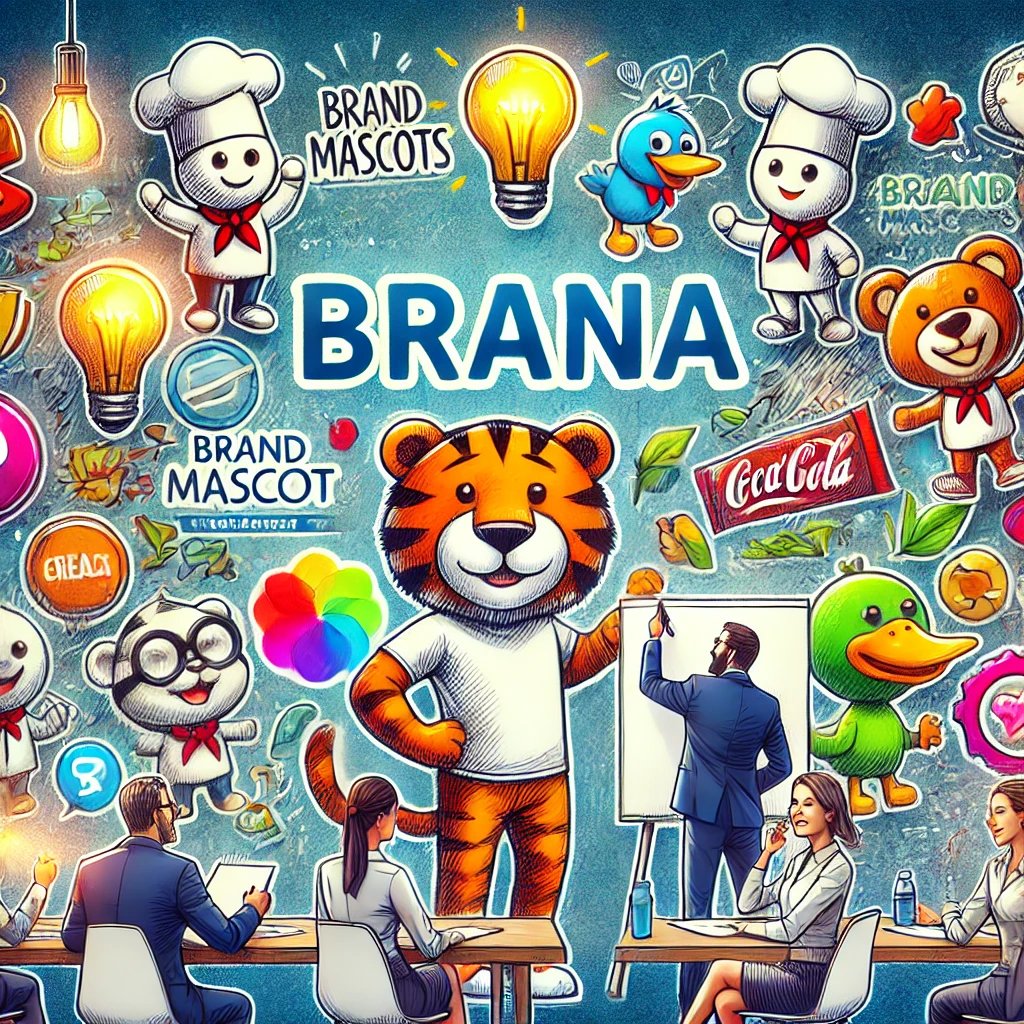Blog
Tips and Strategies for Choosing the Perfect Brand Mascot Name

A brand mascot can be a powerful tool to connect with your audience, humanize your brand, and build long-term recognition. But choosing the perfect name for your mascot is no small task. The name plays a crucial role in defining the mascot’s identity and should align with your brand’s values, appeal to your audience, and be memorable for the long haul. Here are some practical tips, creative strategies, and real-world examples to help you choose a winning mascot name for your brand.
1. Start with Your Brand Identity
The first step in naming your mascot is to ensure it reflects your brand’s core identity. Ask yourself:
- What does your brand stand for?
- What values, tone, or personality traits should the mascot represent?
- How does the mascot’s name fit into your overall marketing strategy?
For instance, Tony the Tiger from Kellogg’s Frosted Flakes embodies strength, energy, and enthusiasm—values that resonate with an active, family-oriented audience.
Tip: Create a list of adjectives that describe your brand. Use these words as inspiration when brainstorming names.
2. Consider Your Audience
Your target audience should be at the center of your decision-making process. A name that resonates with kids might not appeal to adults and vice versa. For example:
- Children’s Brands: Use playful, catchy names that are easy to remember, like “SpongeBob” or “Barney.”
- Professional Audiences: Opt for sophisticated names that exude trust, such as “Mr. Clean.”
Tip: Conduct research on your audience demographics, preferences, and cultural nuances to ensure the name is relatable.
3. Brainstorm Creatively
Here are some creative approaches to generate mascot name ideas:
- Wordplay: Combine words, use rhymes, or create puns. Example: “Punxsutawney Phil” for Groundhog Day.
- Alliteration: Names like “Mickey Mouse” or “Coca-Cola Polar Bear” are memorable because of their rhythmic sound.
- Descriptive Names: Use characteristics of the mascot, like “Speedy Gonzales” for a fast character.
- Personification: Give the mascot a human-sounding name to make it relatable, such as “Ronald McDonald.”
- Cultural or Historical References: Draw inspiration from folklore, history, or pop culture. Example: “Geico’s Gecko.”
Tip: Use tools like name generators, thesauruses, or brainstorming apps to spark fresh ideas.
4. Align with Cultural Considerations
A name that works in one language or culture may have unintended meanings in another. Always check:
- Cultural Relevance: Ensure the name resonates positively across different regions.
- Translation Risks: Verify that the name doesn’t translate into something inappropriate or confusing in other languages.
- Avoid Stereotypes: Be sensitive to cultural representations and avoid names that may come across as offensive.
Example: KFC’s Colonel Sanders mascot uses a culturally neutral and globally recognizable persona.
5. Keep It Simple and Memorable
A good mascot name should be easy to pronounce, spell, and remember. Overly complex names can alienate your audience and reduce recall value.
Successful Examples:
- “Elmo”: Short, sweet, and kid-friendly.
- “Smokey Bear”: Easy to remember and tied directly to the mascot’s purpose.
Tip: Avoid overly long or complicated names. Aim for one to three syllables.
6. Test Your Name Ideas
Before committing to a name, test it with your target audience to ensure it resonates.
How to Test:
- Conduct focus groups or surveys to gather feedback.
- Use A/B testing on social media to see which name generates better engagement.
- Check domain availability and social media handles to ensure consistency.
Tip: Include questions about how the name makes them feel and whether it aligns with the brand’s image.
7. Avoid Common Pitfalls
- Overcomplicating the Name: Simple is always better. Avoid trying to be overly clever.
- Copying Others: Ensure your mascot’s name is original and doesn’t mimic competitors.
- Ignoring Trademark Checks: Run a trademark search to avoid legal issues.
- Neglecting Longevity: Choose a timeless name that won’t feel outdated in a few years.
Examples of Successful Brand Mascot Names
- Tony the Tiger (Kellogg’s): Emphasizes strength and enthusiasm, aligning with the brand’s energy-filled cereal.
- Chester Cheetah (Cheetos): A cool, playful name that reflects the brand’s fun and quirky personality.
- Pillsbury Doughboy: Instantly evokes warmth, friendliness, and baking expertise.
- Aflac Duck: Memorable and tied to the brand name for easy recall.
These strategies can help businesses design the perfect name that not only stands out but also connects deeply with their target audience. A thoughtfully chosen mascot name can be a cornerstone of effective branding, creating a lasting impression across generations.















